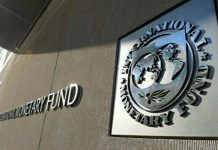ISLAMABAD: Climate change and deforestation have had detrimental effects on honey production and exports, says Sher Zaman, general secretary of the All-Pakistan Beekeeper Exporters and Honey Traders Association.
He told WealthPK that the lucrative beekeeping business in Pakistan was suffering significantly as a result of environmental concerns, leading to a fall in exports.
He said the number of honeybee types had reduced from four to two due to climate change’s adverse effects on the blooming period of flowers, which is crucial for bee survival.
Zaman stated that the devastating floods in 2022 only exacerbated the situation, resulting in the destruction of over 22,000 bee boxes, affecting 124 beekeepers and bee farms.
He added that honey production depended heavily on the jujube tree which has been destroyed by deforestation and flooding.
Zaman expressed his worry that honeybees could become extinct, highlighting the decline in honey exports from Pakistan. In 2007, honey exports had 600 to 700 containers, but this number has now reduced to 200-300 containers due to low quality and beekeepers struggling to cover their expenses.
Zaman added that honey production had also declined significantly with only 2-7kg of honey being extracted from a box compared to 20-25kg in previous years.
“There is a lot of potential in the honey industry in Pakistan,” said Nausheen Barkat, founder and CEO of Asqurr, the first-ever women-led honey brand in Pakistan, while talking to WealthPK.
“To make the most of this potential, the government and agriculture NGOs must work together,” she added.
“Export demand for honey is high, and there is a need for bee flora plantations to meet this demand,” she maintained.
She stated that the flora required for beekeeping was different from regular agriculture. “In harsh winters, bees struggle to produce honey and often face extinction.”
She suggested the government consider transporting small beekeepers to other provinces during the winter months to ensure their survival.
She maintained that there were no proper labs or honey processing units in Gilgit-Baltistan, limiting the beekeeping industry potential in the area.
Nausheen Barkat added that if provided with the international standard labs and units, beekeepers could significantly improve their living standards and take full advantage of the natural resources available to them.
She stated that with proper support and investment, the honey industry in GB could thrive, providing significant benefits to local beekeepers and the economy as a whole.
The Pakistan Business Council has identified several significant domestic honey production constraints. These include the loss of habitat due to deforestation and climate change, a lack of modern farming practices and training for beekeepers, insufficient quality testing infrastructure, and limited focus on value-added products.
According to the council, Pakistan’s domestic honey consumption stands at around 11,147 tonnes, with a per capita consumption of 50 grams. This figure is notably lower than the global average of 150 grams.
The council stated that establishing beekeeper unions and co-operatives could help Pakistan’s honey industry succeed in both domestic and international markets, benefiting from economies of scale. However, modern tools and techniques are also needed for harvesting and maintaining honey quality. Moreover, accessible accredited testing facilities are essential for buying and selling honey based on quality metrics. –INP






